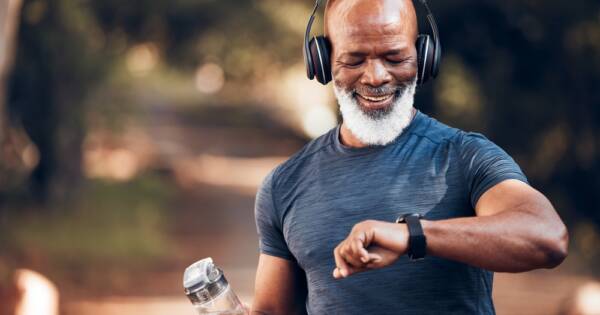CrossFit is the brainchild of gymnast Greg Glassman with the first affiliated gym established in 1995. By 2000 the program travelled across North America. Since then, it has become one of the most popular exercise regimes since the invention of jogging. The program focuses on strength and encompasses the components of fitness—including power, strength, endurance, flexibility, speed, agility, cardiorespiratory strength and endurance, coordination, and balance. The pace is fast as participants move from one station to the other while working up a sweat and leaving shaking from the intensity. To say that CrossFit has become a popular fitness pastime is putting it lightly. The culture of CrossFit has influenced a “take no prisoners” fitness mindset that is attractive to some and terrifying to others.
Although there have been numerous reviews of the pros and cons of CrossFit as it relates to the physical benefits and possible injuries, there have been fewer examining the psychological results of participation. If we were to apply the basics of exercise psychology to the examination of Cross-fit what would the pros and cons be?
Pro: CrossFit May Enhance a Sense of Mastery
Mastery may be defined as having a sense of control, command, and skill over a task such as an exercise or series of exercises. By establishing a sense of mastery over something it may enhance the motivation and commitment to continue the task. CrossFit may offer the participant an opportunity to develop skill sets related to lifting techniques and the coordination needed to perform the exercises of the class.
The benefits of mastery motivation include an elevated level of self-confidence when coupled with social support and words of encouragement from the trainers. Additionally, a sense of accomplishment and changes in skill level and physique also play a role in the adherence to the program.
2. Con: CrossFit May Attract a Certain Exerciser
Although exercise research has yet to define an “exercise personality”, there are certain personalities that are attracted to extreme fitness programs, such as CrossFit. When considering the role of negative body image and development of eating and exercise disorders, traits related to social physique anxiety, obsessive compulsiveness, and perfectionism may play a role in the pursuit of the “perfect” body as defined by photos and other CrossFit media.
Perfectionism, exercise abuse, and compulsive behaviour may influence the participation in a CrossFit program or any other extreme exercise program. In addition, with specific terminology integrated into the program referring to the consequences of pushing too hard (i.e. Pukie the Clown) it is easy to see why this program would attract certain personalities over others. Extreme fitness classes, like CrossFit, provide a safe and non-judgemental environment for those looking to feed their disorders and addictions around body and exercise.
Pro: CrossFit May Increase Mental Toughness
Mental toughness is a term that relates to the ability to perform at high levels no matter what is happening around us. Mental toughness allows the individual to persevere and push through the tough situations without change to performance. Mike Hughes, a performance enhancement specialist for the United States Naval Academy Athletic Association states that the beliefs of the athlete directly influence her athletic performance. As negative beliefs are challenged through training, performance increases, anxiety decreases, and a positive belief in ability is created.
CrossFit, through the rigorous demands of the exercises, may help to increase the mental toughness of the participant by challenging his habitual negative beliefs about his ability through the accomplishment of the workout. As a result, positive beliefs of accomplishment may translate into the demands and challenges of “real” life leading to an increase ability to cope during the tough times.
Con: CrossFit May Influence the Development of Eating and Exercise Disorders
Not just CrossFit, but any extreme exercise program that markets the benefits of participation through pictures of scantily clad men and women touting six packs and low body fat, is going to exacerbate underlying issues around body image. Although much media attention has noted the inclusive nature of CrossFit and a focus on strength and stamina over skinny, the messages of beauty hide in the myriad of photo streams and personal stories of before and after.
Exercise addiction is another mental health concern and one that can damage the mind and body. It can sneak up on the most unassuming novice exerciser once they experience the joy of weight loss or the first sight of a bulging muscle. If a little exercise does that, what will a lot of exercise do? If we become agitated and anxious over the thought of skipping an exercise routine or insist on working out while injured, it may be time to step back and assess if a healthy change is needed.
Pro: CrossFit May Enhance Mental Health
In a literature review on physical activity for mental health, an initiative of the Canadian Mental Health Association in Ontario, the benefits of applying exercise to the treatment and prevention of many mental health issues could not be clearer. From enhancing self-worth and mood to improving anxiety, depression and stress, exercise has been shown to improve mental health and overall quality of life.
If exercise can be seen as medicine, what is the appropriate dose? Research published in the American Journal of Preventative Medicine suggest 5-days a week for 30-minutes a session is enough to benefit one’s mental health. Although CrossFit participation is not recommended for someone just starting an exercise routine, it may be beneficial to note that participation in cardiovascular and muscular strength work is not only creating a strong body, but also a strong mind.
Con: CrossFit May Turn Some Off of Exercise
Human nature may be able to explain why we jump head first into an exercise program only to tire out before the month is over. Many will suffer from exercise injuries relating to poor conditioning before their participation in extreme exercise. Others will wonder why they can’t lift up their arm to brush their teeth after the first few weeks. Because of the pain and suffering of this initial experience, the novice participant may swear off exercise never to return to the gym again.
If one is considering joining in on the CrossFit craze, it is important to understand the training and conditioning necessary before participating in addition to the nature of this class. For example, the ability to execute a proper squat or lift is extremely important to avoid injury down the road. Understanding this class may be loud and fast paced will help prepare the novice for the first day. Take the time to do the research (and the work) to prepare for CrossFit and the likelihood of sticking with it instead of running (or hobbling) in the other direction is greater.
Pro: CrossFit May Lead to Lifelong Friendships
John Lennon once said he got by with a little help from his friends. It could be assumed, then, the demands of CrossFit performed in a group atmosphere must influence the development of friendships overtime. Social support is one of the most important factors in exercise adherence and performance. When people share a demanding and challenging experience, they tend to grow closer together versus apart. Moreover, group fitness (by nature) is going to promote the forging of friendships over an individual workout program.
Health researchers have underlined the important role social connection plays to overall health. People who live and work in silos may benefit the most by connecting with others while exercising. Not only do we benefit from the stress reduction and strengthened immune system by having a workout buddy, but we also have a greater chance of sticking with it.
Con: CrossFit May Damage Existing Relationships
At the same time friendships are being formed at CrossFit class, outside relationships may begin to suffer. It is a fact that people of like minds and interests will stay together while those that don’t relate to our passion for exercise (let alone the intensity of CrossFit) will begin to fall by the wayside. A novice CrossFitter may find more motivation in his group fitness cohort than he does hanging with his old social network. As time goes by, the attachment to the old relationships is replaced by the new (more active) ones.
A study published in the New England Journal of Medicine examined the effect of groups on the development of obesity. Researchers, Nicholas Christakis and James Fowler, found that our social connections influenced our health status. They could predict the chances of obesity from examining the obesity within a social network. Conversely, a person had a greater chance of being fit if her social circle was fit. It would make sense, then, that if our social network comprises of CrossFitters, the ties to the old networks will frey due to our new interest and commitment to fitness.











